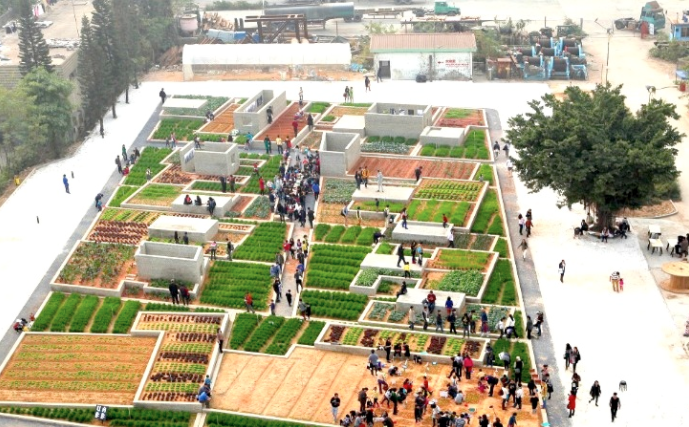Forget Flight of the Conchords: Why food and tech should be New Zealand’s next best duo

When thinking about industries disrupted by technology, the food and beverage sector isn’t the first that jumps to mind.
However, in 2017, tech is everywhere, and it’s even infiltrated one of the human race’s most beloved pastimes – aka, what we put in our bellies.
And though the two aren’t often commonly associated with one another, tech’s influence over the food sector is growing.
Practical, innovative solutions have emerged like artificial meat and urban farms, as have fun, not-so-serious solutions, like pizza-delivering drones.
In fact, the range in which food tech covers is incredibly diverse, ATEED’s general manager of business, innovation and skills Patrick McVeigh says.
He says it’s a very important conversation to have during in Techweek AKL, considering how vital the food and beverage sector is to both Auckland and New Zealand.
“When we talk about Techweek – which is all about celebrating and showcasing tech capabilities – it’s recognising that this applies beyond ICT and it’s disrupting all business sectors,” McVeigh says.
“Food and beverage is a really important sector as it’s our largest exporting sector, but we are also underperforming against national targets for exports. How do we grow the export potential of the food and beverage sector and what role do these new innovations – going from volume to value, the role tech plays, new ways of distributing packaging – have to play? I think we’d like to see more companies formed based on innovation and unique aspects.”
Why food and tech matters
Food and tech is an important combination to think about, as it’s one of Auckland’s largest export sectors.
The city is home to 50 of the largest food and beverage firms by revenue, while in the food processing sector, there are more than 23,000 people employed.
As well as this, around $3.5 to $5 billion is exported annually.
“It’s our main export, so it’s a really important industry. It’s important to remember Auckland isn’t solely an urban economy – a good proportion of our land mass is rural and we have connectivity through the airport in terms of distribution,” McVeigh says.

“Technology has an increasingly important role in all different levels of the value chain, so we can look at the overseas experience and some of the speakers to see how do we apply that in a New Zealand context.”
As well as this, Auckland’s thriving café and restaurant scene has huge appeal for visitors, but McVeigh is keen to expand this to encompass all parts of the destination offering.
“Auckland has fantastic cafes, restaurants and bars – it’s a food destination and that includes all components, from farm to table. It’s important to us to enhance Auckland’s food credentials,” he says.
Lastly, food tech is important to tackle growing global issues, such as sustainability and the ever-increasing global population – all of whom need food to survive.
More New Zealand specifically, McVeigh says there’s a growing urban population who all demand high-quality food.
“How do you manage the impact of intensification? We need to be looking at different ways of producing food and how technology can relate to the growth of food, like urban farming and how that ties into the local food agenda.”
Leveraging New Zealand’s advantages
Though other countries can beat New Zealand by volume in food and beverage exports, McVeigh says tech can be leveraged for advantage in Aotearoa.
“We’re never going to be able to provide mass market responses to food – if we look at key trading partners like China, they could dwarf our entire food system, so in a sense, we could never meet total demand. Where we can meet demand the most is value and where niche opportunities are, like focusing on quality and innovation.”
Companies like Manukee, which is targeting the Asian markets with a health drink with Manuka honey sourced from hives near Tongariro in it, are innovating in this space.
“We’ve got that opportunity to combine those different aspects of health, wellness and wellbeing to cement our position as a leading sports economy,” McVeigh says.

Food + tech event details
Speakers at the event include CEO of the Food Innovation Centre at Monash University Angeline Achariya, The Mixing Bowl founder Rob Trice and head of Agribusiness at KPMG Global Ian Proudfoot.
There’s also involvement from Auckland’s tertiary facilities, with the University of Auckland sharing consumer behaviours and insights, while Massey University will be showcasing its 3D food printing manufacturing.
“We’ve got a good food tech ecosystem here in New Zealand and Auckland with the research at tertiary levels and a growing entrepreneurial ecosystem as well. It’s a great opportunity to hear from the different elements of it,” McVeigh says.
To find out more about the Food + Tech event being held Friday 12 May, head to Techweek’s website.




